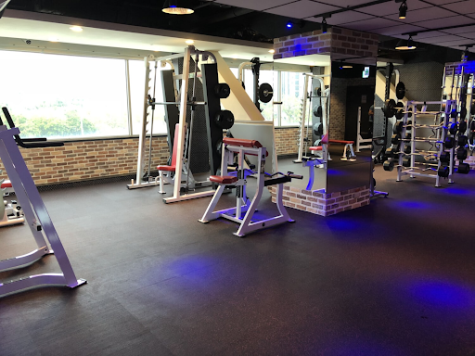New Year, New Me! Or Maybe Not?

photographer – unknown https://creativecommons.org/publicdomain/zero/1.0/
Many people choose to eat healthier as a resolution. For most, this is the start of a healthier lifestyle that they want to obtain due to the 21st century expectations on how life should be.
February 8, 2022
On a cold December night, a crowd stands in Times Square, New York, yelling a count down. 3..2..1… the ball drop marks the start of the new year, 2022. Hope fills the air and some of the crowd reaffirms their affirmations/goals, while others are just happy for another year.
Dakota Ridge is home to many different people, each has their own opinion on New Year’s resolutions. Assistant Principal Mrs. Keller, for example, didn’t make a resolution this year. Instead, she has one word she plans to stick to for the year: focus.
“That word has become, not my resolution, but my daily reminder of what I want to accomplish this entire year,” Keller said.
She chose the word focus due to events in her personal and professional life. She took the idea from a book called “One Word.”
“I got to thinking about that isolation piece and that point where we’re at home, and when I get here, and it feels so good to be around friends and my colleagues and everything. I don’t necessarily get work done because we’ve missed one another,” Keller said.
In a similar mindset as Mrs. Keller, Addison Cole (10) explained her resolution, which is to not procrastinate her work anymore—a fairly common resolution among students, considering the hallway conversations.
“I feel like I’m more stressed out the more I procrastinate my work, and so I wanted to fix that,” Cole said.
A survey created by Georgi Todorov from “Thrive my Way,” showed that 53% of high school students regularly procrastinate their work. The study showed that 88% of those surveyed procrastinate for at least an hour a day.
Brittany Chiavini, the culinary teacher at DRHS, shared her yearly resolution:
“My only New Years’ resolution—and it’s the same every year—is to be more kind and to love more,” Chiavini said.
She explains that her family taught her that she should always try to be a better person than she was yesterday.
“It was more about personal growth, it wasn’t so much about trivial things, I guess—not that working out is trivial…those are admirable goals…those were never really on my radar,” Chiavini said.
On the other hand, Alyson Koerner, Civics and Psychology teacher at DRHS, does not have a New Year’s resolution.
“I don’t really believe in New Year’s resolutions,” Koerner said, “I feel like a lot of people use New Year’s resolutions as an excuse to jump-start their, year when I feel like you should always be working on yourself and trying to improve yourself.”
Although she had resolutions in prior years, Koerner stopped doing them, which can possibly be connected to her not completing them. According to a “Discover Happy Habits” article on New Year’s resolutions, only 4% of people who set resolutions are successful after six months. After further research, the study noted that as of 2014, the majority (35%) of people who failed their resolutions said they had unrealistic goals, while others said that they hadn’t kept track of their progress.
Lily Bender-Stone (10) sees the impact of not completing a resolution via her own experiences around the 31st of December.
“It does kind of suck, to make a resolution, and then I don’t go through with it, and so by the end of the year–or the start of the new year–I’m kind of just like, ‘time to make another thing that I’m not going to follow and then disappoint myself,” Bender-Stone said.
Bender-Stone still does keep making resolutions despite the disappointment she can feel from it. This year she wants to get more sleep and exercise which, as of the last few years, has been one of the top 10 most common resolutions according to an article written by Alyssa Flores of the “Kris 6 News.”

Karle Sandifer (10) also sees the mental health impact resolutions have which is the main reason why she doesn’t have one this year.
“I just didn’t want to take the responsibility of having one and then have to keep it up, as well as keep up my self-confidence and preservation–like that’s the only reason why I’m doing it. I didn’t want to end up hating it and then just stopping, and I don’t like quitting, so I didn’t do one because I knew it wasn’t going to be good for my mental health,” Sandifer said.
Due to all of the mental health issues that resolutions may be correlated with, many people stopped making them. Some feel like a failure or less important than others who finish their resolutions. Others see resolutions as a way of motivation that isn’t long-lasting.
Nile Smith, a counselor at DRHS, sees the positive to the resolutions with the “fresh start,” yet follows it up by explaining his confusion as to why people want to wait until New Year’s rather than start when they feel like they want to.
When it comes to society as a whole, it’s hard to define whether resolutions are a good or bad thing. Many said that it was based on the person, like Kerala Parikh (10).
“I think for some people, who are really goal-driven, it’s great for them, but for others who feel the need to be perfect all the time and complete all their goals, it’s very unhealthy. So there are two sides to the spectrum,” Parikh said.
Keller took an optimistic approach and explained that she believes resolutions to be good in and for society. They provide people with a desire to better their lives, regardless of how temporary it may be.
“At the basis of it is good intentions. People don’t set resolutions that are bad for them or are detrimental to their health or to anything like that. So I feel like at the basis there is good to a resolution.”
Also taking the optimistic side of the “spectrum,” Cole thinks that resolutions are good for our society because they are similar to goals.
“I think that we need to push ourselves every year, and I think New Year’s resolutions are a good way to help with that,” Cole said.
Mr. Smith, unfortunately, disagrees.
“To me, a resolution is a–just to be blunt, I guess–a cop-out for the rest of the year. Everyone uses New Year’s day as a motivational thing, but what is motivation? Does motivation last for any of us? No, it’s not even supposed to, it’s just a momentary burst of energy we have towards something that always fades,” Smith said. “So if that’s what you’re relying on in life, you won’t accomplish anything because motivation doesn’t last and neither will your resolution.”
In society today, some believe that many people have altered the original idea of New Year’s resolutions.
“I think we’ve all become bobbleheads in some sense, right? Just kind of do as we’re told, and do whatever we think is right. I think it’s gotten out of hand,” Smith said.
Smith believes that resolutions have become very different from what they might’ve started as. Karle Sandifer agrees–she sees them as more of a societal habit.
“I’ve heard stuff on the radio–a joke–people joke about making resolutions, and then by the end of the year it’s toast. Or like how gym memberships go up during New Year’s because people want to work on their body image and that specific body for summer,” Sandifer said. “It’s also like peer pressure because someone does it, and then the next person feels like they have to do it. Or like they got inspired by someone who was doing it.”
Sandifer explained that the famous motto “New year, new me” isn’t true because she thinks that a person will be the same when the clock strikes 12. She sees resolutions as not a change of person but a way for people to better their lives, as in making them more positive or healthy. She thinks that society puts pressure on everyone to make a resolution that will last maybe a month.
Smith sees this in his gym every new year. He explains that for the first two weeks, a lot of people join and actually show up, but are gone by the third.
“Everyone has their own life and wants to work it out however they want to do it,” Smith said, “and if New Year’s resolutions work, or it’s something that helps motivate in those moments, more power to you.”


